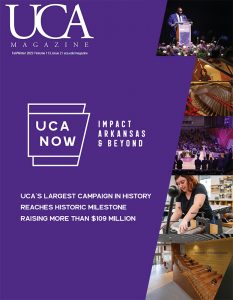As increasingly digital lifestyles produce more and more data, one –°≤›”į‘ļ faculty member aims to incorporate the study of data science into the study of psychology.
Darshon Reed, associate dean of the College of Health and Behavioral Sciences, recently received a nearly $50,000 grant from the National Science Foundation’s Improving Undergraduate STEM Education initiative to integrate data science into undergraduate psychology education.
The grant’s purpose is twofold. First, it will help develop a data science workshop for undergraduates at the Southwestern Psychological Association’s annual meeting. Secondly, it will help increase diversity in data science by funding SWPA conference attendance for 25 students from underrepresented backgrounds.
‚ÄúIn psychology, we’re all about understanding people‚Äôs thoughts, emotions and behaviors,‚ÄĚ Reed said. ‚ÄúSo, for me, it really is exciting because we can apply the data and examine it for predictive value, to see trends, and possibly prevent certain things from happening to people. This workshop will allow our students to see psychology is bigger than counseling and therapy. We have so many different parts of psychology that can utilize data science, but right now I don’t think our students are getting as much training in that area.‚Ä̬†
The workshop will focus on building participants’ knowledge of data science and increasing their ability to employ data science methods in research. Workshop instructors will guide attendees through an abbreviated process of developing a research proposal that utilizes big data. The students will also learn about career paths through a panel discussion featuring data scientists. 
‚ÄúI‚Äôm very invested in diversity, equity, inclusion, and belongingness,‚ÄĚ Reeds said. ‚ÄúAnd the field of psychology needs to have a better representation of society.‚Ä̬†
SWPA serves as the southwestern regional affiliate of the American Psychological Association and includes members from Arizona, Arkansas, Kansas, Louisiana, Missouri, New Mexico, Oklahoma, Tennessee and Texas. Reed has been on the executive council of SWPA for almost a decade, most recently serving on the presidents’ council as president-elect, president and now past president. 
The conference, Reed says, is an invaluable opportunity for students to become connected and network with professionals and experts. In conversations with some of the other regional presidents during a past conference, Reed discovered that a colleague was an NSF director who suggested that the NSF could help SWPA students.
‚ÄúI saw that as an opportunity and I wanted to figure it out,‚ÄĚ Reed said. ‚ÄúI applied for a grant and learned I needed to make more connections. So I partnered with our current president, Dr. Tom Faulkenberry. He has colleagues who are in data science programs and he wanted them to lead a workshop. That’s how we were able to put the last pieces together. His conference theme is focused around psychology by the numbers, so this data science workshop falls right into place.‚ÄĚ
Reed intends for the data science psychology workshop to complement the formal learning that psychology students receive in the classroom. She also hopes that the workshop will provide more opportunities and access to studying data science. She plans to put the findings from the assessments of the workshop into a mini workbook and curriculum guide that will be shared broadly. 
‚ÄúWe want to duplicate this workbook across the other regions of APA so that this becomes more normalized in our field,‚ÄĚ Reed said. ‚ÄúWe understand there may be some psychology programs that don‚Äôt have data science as part of their curriculum, due to capacity or limited resources. This workshop can help meet that need.‚ÄĚ
Reed, who also serves as an¬†associate professor in –°≤›”į‘ļ‚Äôs Department of Psychology and Counseling, earned her Doctor of Philosophy in Experimental Psychology from Oklahoma State University in Stillwater. Her research focus is goal pursuit, which falls under the self-regulation umbrella. Reed has previously examined how social comparisons influence goal pursuit and disengagement (e.g. health, wellness, and academic goals) and how group identity impacts perceptions of goal progress and achievement.
‚ÄúYou can apply goal pursuit to almost anything,‚ÄĚ Reed said. ‚ÄúI examine goal processes and how even our own identity and cultural identity impact our goals. Some of my research teams are currently looking at how we frame failure and how that impacts our choice to continue our goal pursuits. I believe data science opens a whole new door to how we can measure and assess these critical topics.‚ÄĚ

